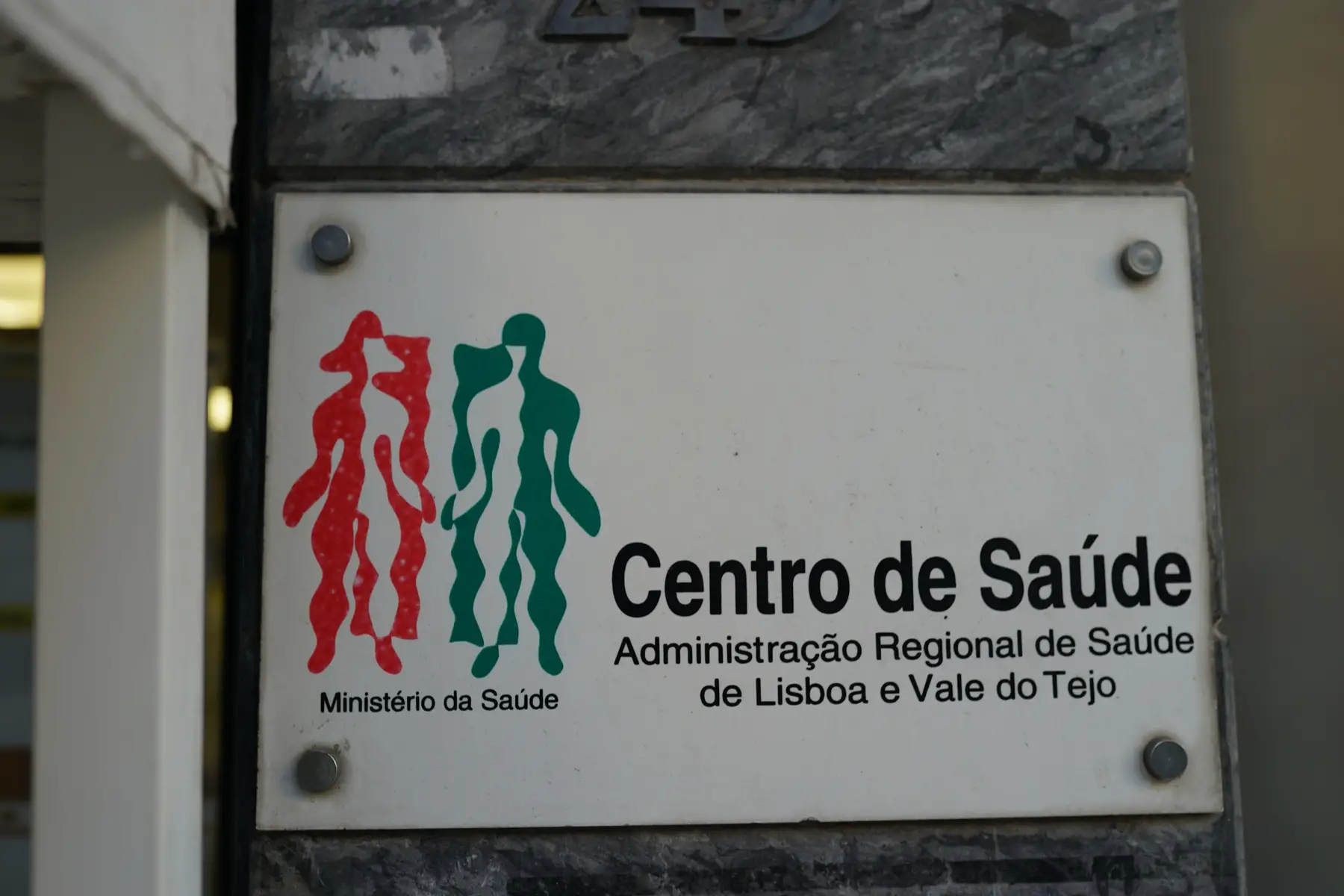Women moving to Portugal will naturally want to have a good understanding of the country’s healthcare system and how to access it. However, this can be challenging, especially if they face a language barrier. So, to make things easier, this helpful guide explains everything you need to know about healthcare for women in Portugal.
It includes the following information:
- An overview of women’s healthcare in Portugal
- Accessing women’s healthcare in Portugal
- Insurance for women’s healthcare
- Gynecologists in Portugal
- Women’s contraception in Portugal
- Maternity care services in Portugal
- Breastfeeding in Portugal
- Fertility treatments in Portugal
- Abortion in Portugal
- Menopause in Portugal
- Cancer screenings in Portugal
- Sexual health in Portugal
- Women’s mental health services
- Services dealing with abuse and violence against women
- Useful resources
Cigna Global
Want access to the best private medical services in Portugal? Speak to the healthcare professionals at Cigna Global today and find a policy that’s right for you. Take advantage of their global network of doctors, specialists, therapists and more with coverage tailor-made for you and your family. If you’re starting a new life in Portugal, get peace of mind with Cigna Global.
An overview of women’s healthcare in Portugal
Fortunately for expats moving to Portugal, the country offers high-quality universal healthcare access, which includes most aspects of women’s healthcare. In fact, the World Health Organization (WHO) ranks it as 12th in a list of 190 countries. Moreover, World Bank data from 2020 shows that women’s life expectancy in Portugal surpasses that of men, averaging 84.1 years and 78 years, respectively. This is good news for those looking to settle in the country.

The healthcare system in Portugal is funded by the government and benefits both nationals and foreigners alike. All foreign residents or employees in Portugal typically have the same healthcare rights as the Portuguese themselves. Essentially, if you live and work in Portugal and contribute to the country’s social security system, you will be eligible for public healthcare.
Portugal’s public healthcare system provides a relatively high standard of care. That said, due to long waiting times, some women choose to take out private health insurance. This not only allows them to be seen quicker but also grants them access to a wider range of healthcare services. Naturally, this depends on one’s specific needs and concerns, and you can read more about this further down the guide.
Accessing women’s healthcare in Portugal
There are two ways to access women’s healthcare in Portugal; via the national health service – the Servico Nacional de Saude (SNS) – or the private healthcare sector. Below is an overview of how to access these.
Public healthcare for women
If you are working in Portugal, your employer should automatically enroll you and arrange payments into the social security system in Portugal, after which you will have public health insurance. To register with the SNS, you will need to visit the health center (centro de saúde) closest to your home. Notably, you will need to present your residence permit or an employment contract, along with your fiscal number (número de identificação fiscal – NIF). You will then receive your healthcare number (número de utente) which enables you to make appointments with a doctor at your health center, public clinics, and hospitals.

Once you have a healthcare number, you will be assigned to a general practitioner (médico de família) who will give you access to all other medical specialties and procedures, should the need arise. That said, women can directly request a planned parenthood consultation or pre-pregnancy termination appointment at their centro de saúde without needing to consult a doctor first.
The app SNS 24 enables patients to book appointments online. Alternatively, they can call their centro de saúde directly, or show up in person. While appointments with the SNS are free for pregnant women and certain other groups, other patients will need to pay for a consultation. However, the consultation cost (taxa moderadora) is inexpensive.
Private healthcare for women
The alternative way of accessing women’s healthcare in Portugal is by booking an appointment with a doctor or specialist in the private sector. Notably, unlike in some other countries, you don’t need to have private health insurance to access the private health sector in Portugal.
Moreover, you can see a specialist without needing a referral from your GP. However, if you do this, you will need to cover all the expenses yourself. Insurance, on the other hand, will cover part of the costs, depending on the level of coverage.
When it comes to finding the right doctor in Portugal, word of mouth is a good place to start. This might mean asking for recommendations in your social circle or through local expat groups.
Insurance for women’s healthcare
Taking out private health insurance in Portugal is essentially the fastest way to access women’s healthcare if you aren’t registered with an SNS doctor. It can significantly reduce the waiting times for certain medical consultations, such as seeing a gynecologist or a psychologist. It can also grant you access to better facilities, a wider choice, and fewer language barriers.
Some of the largest private health insurance companies in Portugal include:
You can also check out our health insurance quotes page to find the right provider for you. Alternatively, the DECO Proteste (in Portuguese) independently tests a variety of products for consumers and can help you find the right health insurance policy.
Health insurance costs
Fortunately, private health insurance in Portugal is generally affordable. It can range from between €10 and €70 per month, depending on your policy and provider. Typically, the more you pay the more coverage you get. But thankfully, you don’t need to invest a lot in order to have your basic needs met. This includes hospital bills and screenings. Notably, most insurance policies also cover pregnancy and childbirth.
It is important to be aware that in addition to your monthly insurance costs, you will need to pay a percentage of your medical costs yourself. But again, this depends on the type of insurance you choose. Therefore, it is important to do your research and compare policies before you commit to a plan.
Notably, you can usually claim a reimbursement from the insurance company online. However, in some instances, a deduction from a medical bill is automatically applied when you present your health insurance card. Some healthcare providers such as the ambulance service or cancer care may also cover these bills in full.
Gynecologists in Portugal
In Portugal, gynecologists treat patients in situations of menopause, infertility, pregnancy, and those who wish to end it. They can also conduct check-ups and prescribe contraception. Women can book an appointment with a gynecologist when they are dealing with certain symptoms or if they want to discuss cancer prevention and sexually transmitted diseases.

Choosing your own gynecologist is possible in Portugal, but only within the private sector. But again, you don’t need to have private health insurance to access any private healthcare facility in the country. A doctor in a private practice may also conduct home visits, although these are less common. They can also perform pelvic and/or breast examinations, and pap smears, which check a patient for cervical cancer. Pregnant women will typically deal with a gynecologist-obstetrician (obstetra) who specializes in pregnancy, childbirth, and postpartum.
Gynecologists in the SNS
If you are registered with your local health center, your GP can refer you directly to a gynecologist within the SNS. However, waiting lists for these types of physicians can be lengthy. For emergencies, you can always visit a public hospital, although these can be very busy, too. Notably, waiting times in the public health sector vary according to the region you live in.
Gynecologists in the private sector
Alternatively, you can book an appointment with a gynecologist within the private sector without needing a referral from a doctor. Private health insurance normally covers gynecology care; however, you should check with your insurance provider first, as the cost of private gynecology services can amount to a hefty sum, depending on what care and treatment you require.
The gynecologist will examine you and prescribe any necessary creams and/or prescription drugs. In some cases, you may need to undergo additional screenings in order for them to identify the required course of treatment. You can usually consult the listings on your health insurance provider’s website to find a gynecologist within the private sector.
Women’s contraception in Portugal
Women can easily gain access to birth control in Portugal. The most common contraception methods prescribed on the SNS are the oral contraceptive pill, the IUD (intrauterine device,) the diaphragm, the contraceptive ring, and adhesive.

However, all of these methods require a doctor’s prescription. Alternatively, condoms are widely available at pharmacies and larger supermarkets across the country. The morning-after pill is also available over the counter in any pharmacy without the need for a prescription.
Accessing birth control via the SNS and private healthcare sector
Aside from condoms and emergency contraception, all birth control methods require a prescription in Portugal. This can either be from your general practitioner (médico de família) or gynecologist; either through the SNS or the private healthcare sector.
Although there are no sexual health clinics in Portugal, most health centers and some hospitals offer a Planned Parenthood Consultation (consulta de planeamento familiar) where you can gain information and advice regarding reproductive health and birth control prescriptions. Essentially, as long as you have a healthcare number, you can book a consultation.
Maternity care services in Portugal
Portugal’s national healthcare system covers maternity care, and this is free or available at a low cost for those who contribute towards social security. In order to access it, you must be registered at your local centro de saúde, where all your initial appointments will take place.

In Portugal, it is customary to give birth in a hospital ward and you are generally free to choose the hospital; unless your practitioner requests another one. If you have private health insurance, you can also choose to give birth at a private maternity hospital, where you have more options; this includes having a midwife present at the time of birth. In this case, it is advisable to discuss any special requests with your doctor in advance.
If you are giving birth in a public hospital, however, there is little room to make requests such as having a midwife or doula present during the delivery or giving birth in a position other than laying down. Indeed, hospitals are still quite old-fashioned when it comes to birth, and women usually need to adapt to doctors rather than the other way round.
The benefits of private health insurance
Notably, for some expectant mothers, having private health insurance can bring peace of mind when they are thinking about having a baby in Portugal. This is partly because the costs of giving birth in a private hospital can be high. For instance, it can easily add up to more than €2,200 in the case of vaginal birth and €4,500 for a Caesarean section.
With this in mind, you should check the details of your insurance plan, including the waiting periods, beforehand. It is also important to be aware that a woman typically needs to have been insured for 12 to 24 months before she can claim maternity care benefits. She may also have to pay a share of the costs herself, depending on the plan she chooses.
Breastfeeding in Portugal
Breastfeeding is very common in Portugal, and between 71.7% and 86.7% of babies are nurtured this way. More and more women are also opting for exclusive breastfeeding until the third or sixth month. You can read more about the different views on breastfeeding around the world in our guide.

In Portugal, paternal leave is set at 20 days, and maternity leave is set at four months; although there is the possibility of an extension to six months. The downside of this extension, however, is that the mother’s salary will decrease to just 25% for the two additional months. Naturally, the duration of maternity leave can be a factor when it comes to deciding whether to breastfeed or not.
Fertility treatments in Portugal
Fortunately, IVF legislation in Portugal is fairly advanced and even accounts for same-sex couples and single women.
Accessing IVF through the public sector (SNS)
Women wanting to undergo IVF through the SNS will be glad to know that the Portuguese government funds up to three rounds of treatment. These must take place in public centers. Women can also undergo ICSI (Intracytoplasmic Sperm Injection), which helps with problems regarding sperm quality and opt for an egg donation. Notably, government-funded IVF treatment covers women up to 40 years of age. However, the age limit for men wanting to undergo IVF is 60 years old.
Besides same-sex couples and women without a partner, these techniques are intended to serve couples dealing with infertility. Those with a family history of serious illness may also be illegible, as some fertility techniques can identify embryos that carry certain diseases.
However, the downside of getting IVF treatment through the SNS is that waiting times can be lengthy. For instance, in the Lisbon area, it can take around 60 days for a first consultation and up to 187 days until the treatments actually take place.
Accessing IVF through the private sector
There are typically no waiting times when it comes to accessing IVF in the private sector in Portugal, which is a major advantage. Couples also reported that these clinics offer more comfort and friendlier medical staff.

That being said, a private fertility clinic will typically charge around €4,500 for a three-round treatment that uses a woman’s own eggs. Meanwhile, treatment with donated eggs can cost between €6,000 and €8,000. However, your insurance can partially cover these costs, depending on your policy.
While these prices should include all the IVF procedures, just keep in mind that you also need to pay for the first consultation. In addition to this, embryo storage costs around €450 for a period of three years. Notably, most private IVF clinics are located in large cities like Lisbon, Porto, and Coimbra.
Abortion in Portugal
Abortion has been legal in Portugal since 2007 and is known as ‘voluntary interruption of pregnancy’ (interrupção voluntária da gravidez). The procedure is free of charge and can take place up to ten weeks after the date of the last menstruation. However, this period can be extended to twelve weeks if the pregnancy is causing serious injury to the physical or mental health of the woman, or if there is a risk of death.
If the pregnancy is a result of a non-consensual sexual act, the woman can also choose to have a termination up until week 16. And for congenital malformations and incurable diseases of the fetus, the period extends to 24 weeks. Importantly, terminating a pregnancy is possible at any time if the baby has no chance of being born alive.
Having an abortion via the SNS or private sector
All women, including nationals and foreigners, have the right to an abortion in Portugal during the allowed time frame. This can take place within the SNS or in a private hospital that is certified by the council of public health (Direcção Geral de Saúde – DGS). If this is your wish, you can contact your local health center or maternity center to start the process. The way to do this is to schedule a pre-abortion consultation, which is mandatory in both the public and private sectors.

For more information on SNS hospitals and health centers in your area, you can call SNS 24 on 808 24 24 24; then choose option 9 if you need to speak in English. The best way to find private hospitals that can legally perform an abortion is to call different private hospitals in your area. Alternatively, you can ask your local public health center directly.
Notably, a physician can declare personal objection to abortion (objeção de consciência) on the grounds of their religious faith. But even so, they must refer you to another health professional or entity that will carry out the procedure.
The three steps to having an abortion
In Portugal, terminating a pregnancy requires a mandatory pre-abortion consultation. This is where the health professional provides the necessary information about the procedure, answers questions, and advises the patient on the different methods of abortion available.
After the duration of the pregnancy is determined via ultrasound, a date is set for the procedure. Notably, the woman must wait a minimum of three days after the pre-consultation for the abortion itself; this is called the reflection period. That said, she can request to extend this period; for instance, if she decides to seek psychological support.
The second step is the abortion itself. This can either take place at a hospital, where surgery is performed, or at home when the woman uses medication to terminate the pregnancy. The third step is a follow-up appointment to ensure that the termination was successful and that the woman is in good health. Notably, people who perform illegal abortions in Portugal may face penalties of up to two years in prison; or more if this was done against the woman’s will. A woman who undergoes the procedure illegally may also face up to three years in prison.
Menopause in Portugal
Both doctors working in the SNS, as well as those in the private sector, can treat patients suffering from general menopause symptoms. This might include sleeping difficulties, vaginal dryness, anxiety, hot flushes, and night sweats. Sometimes, lifestyle changes are enough to ease the discomfort. However, in cases that involve more serious symptoms, your physician can refer you to a specialist.

When needed, gynecologists may also prescribe medication such as hormone replacement therapy (HRT) and/or vaginal estrogen creams and lubricants. In some cases, a doctor who specializes in menopause can also recommend medication such as a tranquilizer or an SSRI in combination with therapy and/or lifestyle changes.
Notably, some private hospitals, such as CUF or Luz Saúde, offer consultations specifically for women who are in this phase of their life. Again, women in Portugal can consult with specialists within the private healthcare sector without needing a referral from their GP first.
While the public healthcare system partially covers medication for menopause, such as HRT, it does not cover alternative medicine. Therefore, women wishing to explore holistic health therapies such as acupuncture must need to pay their own expenses in full. Alternatively, they might want to consider arranging private insurance which may cover part of the costs.
Cancer screenings in Portugal
Doctors recommend that women between the ages of 25 and 64 have cervical cancer screenings (also known as PAP smears) and breast cancer screenings (mammograms). Patients who are predisposed to cancer (namely those with genetic risk factors) will also be considered for these screenings. These check-ups take place every year or every three years, depending on your individual situation.
However, because these are recommended preventative screenings and are not mandatory, doctors might not always mention them. That said, you can always request them; after all, doctors in Portugal are usually open to the idea of prevention. Depending on the type of insurance you have, you can undergo these screenings in a public or a private practice.

Notably, ovarian cancer screenings are usually only performed if a woman presents any symptoms. In fact, the general consensus on ovarian cancer advises against screenings unless there is a history of the illness within the family.
The HPV quadrivalent vaccine was introduced in Portugal’s national vaccination program in 2008. It now extends to almost 90% of women in the country. If you think that you are at higher risk of contracting HPV, it is important to discuss preventative care with your doctor.
Sexual health in Portugal
Screenings for sexually transmitted diseases (STDs) are easy to access in Portugal through the SNS or private sector. Women just need to request these with their doctor who will send them for the necessary tests. Private clinics will likely be faster in terms of consultations and blood work; however, you should check the timings with your centro de saúde first.
There are also several non-profit organizations in Portugal that you can reach out to for screenings for the main sexually transmitted diseases. For instance, initiatives such as Rede de Rastreio, Positivo, and Abraço offer free screenings for HIV, Hepatitis B and C, and Syphilis, among other services. While they mainly focus on vulnerable populations, they are also open to the general public; so it’s worth checking if they have a spot. Notably, the World Health Organization (WHO) also honored the Portuguese Community Screening Network for its good practices in the field of HIV prevention.
Women’s mental health services
Women seeking mental health services in Portugal are better off taking the private healthcare route. This is due to the fact that community health care is still largely underdeveloped in the country. In fact, studies found that lifetime mental disorders in Portugal are in excess of 30% when compared to other European countries.

That said, those who do choose to go through the public healthcare system can get a referral from their GP to see a psychiatrist or psychologist. But they should be aware that there aren’t many specialists in the SNS who treat diseases of the psyche. And for those that do, the waiting lists are typically long. Therefore, it is advisable to consult with professionals in the private healthcare sector if you need mental health support.
Private mental health clinics in Portugal
Fortunately, you do have options when it comes to accessing private mental health clinics in Portugal. Notably, while prescription drugs are a common approach that doctors use to treat conditions such as postnatal depression, they are also more open to new approaches and to combining therapies such as pills and talk therapy.
In some cases, psychotherapy alone will work well, too. However, some health insurance providers don’t compensate for the costs of psychologists or other counselors. And in cases where they do, the amount they cover is usually small. Therefore, it is important to do your research and to ask all the right questions when choosing a therapist.
Services dealing with abuse and violence against women
There are different things that one can do when dealing with situations of violence against women in Portugal. For instance, the Portuguese Association for Victim Support (APAV) is a non-profit that provides advice via a free helpline. It also offers other types of support ranging from counseling to finding a shelter. There is also a Skype helpline for deaf people as well as a service for migrants and victims of discrimination. When one cannot report an incident in person, they can do it online via a governmental website (in Portuguese).
Substance abuse in Portugal
Those dealing with substance addiction in Portugal can call a helpline for support and advice. This is managed by the non-profit Intervention Service for Addictive Behaviors (SICAD) and is free of charge and confidential. Meanwhile, people dealing with problems relating to alcohol can reach out to the Alcoholics Anonymous (AA) helpline in Portugal. They can also find information about local meetings on the AA website.
Useful resources
- SNS 24 – provides information about the SNS, centros de saúde and hospitals near you, referrals, and therapeutic advice
- The Family Planning Association (APF) – a non-profit offering counseling for children, teenagers, and adults. They also provide sexology consultations and support for victims of domestic violence.
- APAV Victim Support – offers information and support as well as a free helpline for victims of domestic violence
- Infovictims – provides guidance to victims of violence regarding how to report crimes in Portugal






